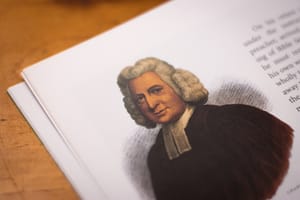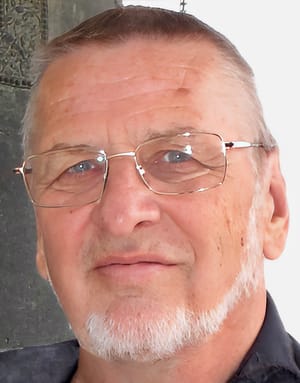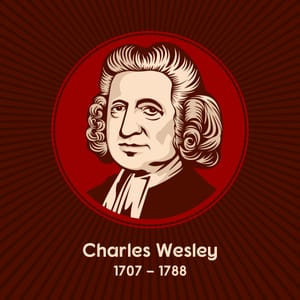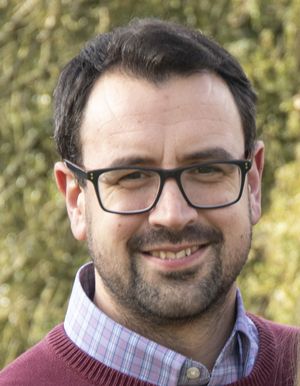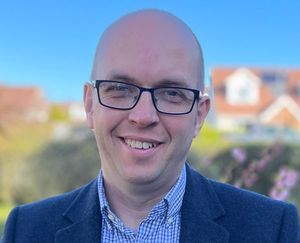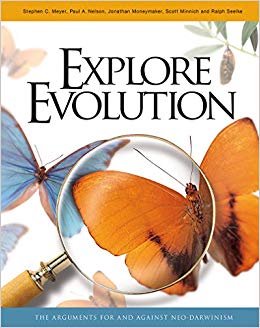The Moravian connection – Moravians and the Evangelical Awakening (2)
John Wesley, an Anglican clergyman and missionary to Savannah, Georgia, during the mid-1730s was in deadly earnest about personal holiness. He had embarked upon his mission with the aim of securing his own salvation.
His religious quest had begun years earlier. He recalled in his Plain account of Christian perfection that, ‘In the year 1725, being in the twenty-third year of my age, I met with Bishop Taylor’s Rule and exercises of holy living and dying. I reading several parts of this book was exceedingly affected…
‘Instantly I resolved to dedicate all my life to God, all my thoughts and words and actions; being thoroughly convinced there was no medium; but that every part of my life (not some only) must either be a sacrifice to God, or myself – that is, in effect, to the devil’.
Wesley was also influenced by Thomas a Kempis’ Imitation of Christ and William Law’s Practical treatise upon Christian perfection and Serious call to a devout and holy life, as well as the early church fathers and Catholic mystics, not to mention the high Anglican stance of his father, rector of Epworth in Lincolnshire, and mother. In 1726, he was elected Fellow of Lincoln College, Oxford.
Holy Club
Before sailing to New England he and his brother Charles met regularly with a small group of Oxford students for academic and religious improvement. They engaged in prayer, Bible study, fasting, communion, prison visiting and caring for the sick.
They were nicknamed by other Oxford students as ‘Bible moths’ or ‘the Holy Club’. In fact, they were strangers to salvation by grace; their spiritual condition could be described by Romans 10:2-3: ‘They have a zeal of God, but not according to knowledge. For they being ignorant of God’s righteousness, and going about to establish their own righteousness, have not submitted themselves unto the righteousness of God’.
Their ship, the Simmonds, reached Savannah on 6 February 1736. The next day, General Oglethorpe introduced Wesley to the Moravian, August Gottlieb Spangenberg (1704-1792). Wesley had already been deeply impressed by the calm, Christ-like bearing of a party of Moravians also travelling in the Simmonds to America, especially during a violent storm (see October ET).
Wesley’s and Spangenberg’s conversation was later noted by Wesley. Spangenberg said, ‘My brother, I must first ask you one or two questions. Have you the witness within yourself? Does the Spirit of God bear witness with your spirit, that you are a child of God?’
Wesley says, ‘I was surprised, and knew not what to answer. He observed it and asked, “Do you know Jesus Christ?” I paused, and said, “I know he is Saviour of the world”.
‘“True”, replied he; “but do you know he has saved you?” I answered, “I hope he has died to save me”. He only added, “Do you know yourself?” I said, “I do”. But I fear they were vain words’.
On 31 July 1737, John had another conversation with Spangenberg in which he was told that conversion meant ‘passing from darkness to light, from the power of Satan unto God’, and that this passing can either be gradual or instant.
Disappointment
For a month Wesley lodged with Spangenberg. The ordination of Anton Seiffart as Moravian bishop for Georgia impressed him with its ‘simplicity, as well as solemnity’. Indeed, Benjamin Ingham and John Wesley would have liked to have joined the Moravians there and then, but Spangenberg was reluctant.
Wesley’s time in Georgia was unsuccessful. Writing in 1899, Alexander Gordon said, ‘Wesley’s preaching was regarded as too personal, and his pastoral visitation as censorious. His punctilious insistence on points of primitive usage (e.g. immersion of infants at baptism and use of the mixed chalice), his taking the “morning service” at five, and “the communion office (with the sermon) at eleven”, his introduction of unauthorised hymns, his strictness in the matter of communicants, excluding dissenters as unbaptised, his holding a private religious “society”, provoked the retort, “We are Protestants”.’
On 7 February 1738 he arrived back in England deeply discouraged. But, in the providence of God, he met another Moravian – Peter Boehler (1712-1775) who had just landed from Germany. Boehler had been converted through the influence of Count Zinzendorf and was nine years younger than John.
John and Charles soon formed a close friendship with Boehler. John took him to Oxford and on to Stanton Harcourt in the Cotswolds, where John Gambold, formerly of the Holy Club, was now rector.
On the way to Oxford Boehler warmed to Wesley, even though he perceived Wesley did not yet ‘know the Saviour’. He saw that he was teachable and felt optimistic about him.
At Oxford, on 18 February 1738, Wesley ‘conversed much’ with Boehler, but ‘understood him not, and least of all when he said … “My brother, my brother, that philosophy of yours must be purged away”.’
On 4 March, once more at Oxford, Wesley wrote of his conversation with Boehler, ‘I found my brother at Oxford recovering from his pleurisy; and with him Peter Boehler: by whom (in the hand of the great God) I was on Sunday, the 5th, clearly convicted of unbelief; of the want of that faith whereby alone we are saved.’
Preach faith
‘Immediately it struck into my mind, “Leave off preaching. How can you preach to others who have not faith yourself?”
‘I asked Boehler whether he thought I should leave it off, or not. He answered, “By no means”. I asked; “But what can I preach?” He said, “Preach faith till you have faith”.
‘Accordingly, Monday, 6, I began preaching this new doctrine, though my soul started back from the work. The first person, to whom I offered salvation by faith alone, was a prisoner under sentence of death’.
Boehler had convinced John at last to believe that Christian conversion happened in an instant and led to a definite assurance of salvation. Boehler testified to this experience himself and introduced several other Moravians to Wesley who all testified of the same experience of instantaneous faith.
Profoundly challenged, Wesley continued searching the Scriptures, until he was constrained to declare, ‘I was now thoroughly convinced and, by the grace of God, I resolved to seek it unto the end, first, by absolutely renouncing all dependence, in whole or in part, upon my own works of righteousness, on which I had really grounded my hope of salvation, though I knew it not, from my youth up’.
Still John lacked assurance that he had this faith and that his sins were forgiven. But Charles found peace with God on Pentecost Sunday, 1738, while staying with a Moravian in London.
A few days later John himself at last entered Christ’s kingdom. He describes it in his journal in now well-known words: ‘Wednesday, May 24. In the evening I went very unwillingly to a society in Aldersgate Street, where one was reading Luther’s preface to the Epistle to the Romans.’
Strangely warmed
‘About a quarter before nine, while he was describing the change which God works in the heart through faith in Christ, I felt my heart strangely warmed. I felt I did trust Christ, Christ alone, for salvation; and an assurance was given me, that he had taken away my sins, even mine, and saved me from the law of sin and death’. With hindsight, this journal entry marks one of the most decisive moments in British history.
Most revivals in England over the last two centuries trace a decisive influence back to the Methodist movement. Consider too the enduring impact for good that Methodism has had on British society, whether through the very large number of Wesleyan and Primitive Methodist converts, or through Methodism’s influence on early Anglican Evangelicals and the Clapham Sect. Not least among its societal fruits was the abolition of the slave trade.
William Lecky was not exaggerating when he said of John Wesley’s conversion that ‘what happened in that little room was of more importance to England than all the victories of [William] Pitt by land or sea’. A strong case can be made for saying that, William Tyndale apart, no Briton has done more good for his nation and the spread of Christianity in the western world.
Holy love
Arnold Dallimore’s excellent biography of George Whitefield, published by the Banner of Truth in the 1970s, rescued the reputation of Whitefield from undeserved obscurity. Whitefield was the more reformed preacher and a more eirenic personality than Wesley, but now, it seems that Reformed evangelicals have gone to the other extreme and almost lost sight of Wesley.
In the wisdom of God, John Wesley made the greater contribution to the evangelisation and reformation of our nation even than Whitefield. And, for Wesley, Moravian influence was decisive.
What was it that transformed the sincere but spiritually lifeless piety of the Holy Club, charging it with such holy love and zeal? It was the Moravian testimony and message, pointing to the blessings that flow from Christ’s sufferings and death, and adorning that testimony with selfless, Christ-like living.
Roger Fay
To be continued


